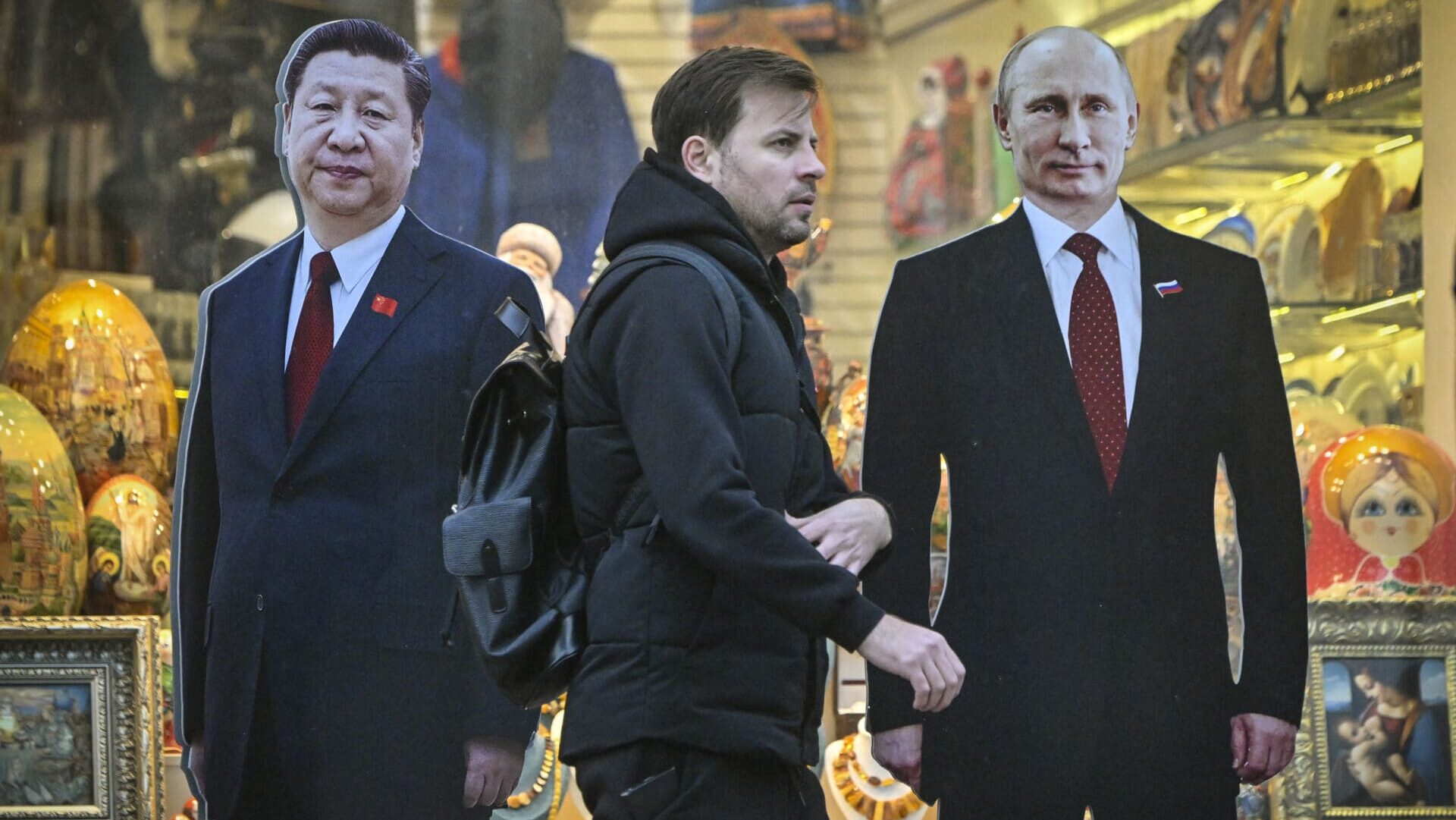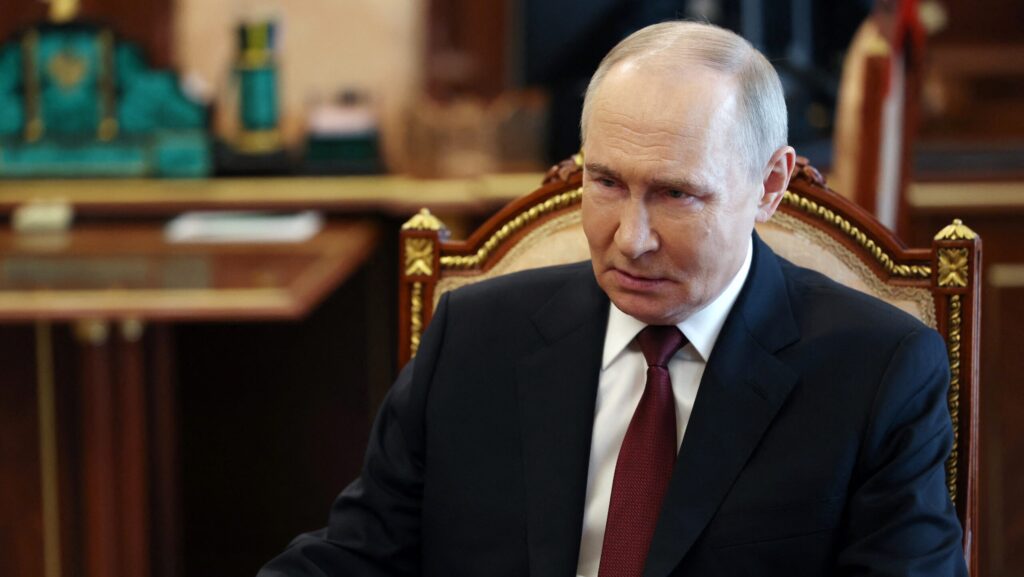Vladimir Putin supports China’s proposal for a peaceful resolution of the Ukraine crisis, and believes that Beijing has a thorough understanding of the underlying causes of the conflict, he stated in an interview with Xinhua, published on Wednesday, the day before his departure for a state visit to China.
‘We are positive in our assessment of China’s approach to solving the Ukrainian crisis,’ Putin stressed. He added: ‘In Beijing, they truly understand its root causes and its global geopolitical meaning.’
Last February, on the first anniversary of the war in Ukraine, Chinese President Xi Jinping unveiled his 12-point peace plan, which elicited mixed reactions from the international community. Western nations predominantly responded negatively, with Hungary being the notable exception. However, countries outside the transatlantic sphere with a vested interest in peace reacted positively. Both Russia and Ukraine had lukewarm feelings towards the plan.
Since then, Beijing has introduced a new four-point peace plan, which was presented in April during German Chancellor Olaf Scholz’s visit to Beijing. During the meeting between Xi and Scholz, the Chinese leader emphasized that all countries involved in the Ukraine war should commit to an early restoration of peace to prevent the conflict from escalating and potentially spiralling out of control.
According to Newsweek, Xi also outlined four key principles to ensure that peace is achieved between Kyiv and Moscow:
- Prioritizing peace and stability over ‘selfish’ gains;
- Cooling down the situation in Ukraine, rather than ‘adding fuel to the fire’;
- Establishing conditions for the restoration of peace, rather than aggravating the situation;
- Reducing the negative impact of the war on the global economy.
Hungarian Prime Minister Viktor Orbán also endorsed the Chinese peace plan during Xi Jinping’s visit to Hungary last week. ‘Today, Europe stands on the side of war, with the only exception being Hungary, which advocates for an immediate ceasefire and peace negotiations, and supports all international efforts towards peace. This is why we support the Chinese peace initiative presented by President Xi Jinping,’ PM Orbán underlined. ‘There is no solution to this conflict, to this war, on the battlefield; the battlefield only brings death and destruction,’ he added, reaffirming: ‘What is needed is a ceasefire and peace negotiations.’
Putin’s statement arrives at a time when, given the current state of the war, Russia should not be contemplating peace. According to The New York Times, Ukraine’s military is facing a ‘critical’ situation in the country’s northeast, grappling with troop shortages as it attempts to repel a Russian offensive that has been advancing for several days. ‘The situation is on the edge,’ Gen. Kyrylo Budanov, the head of Ukraine’s military intelligence agency, said in a video call from a bunker in Kharkiv.
‘Every hour this situation moves toward critical.’
In addition to being outnumbered, the Ukrainians are grappling with critical shortages of weapons, particularly artillery ammunition. Furthermore, arms worth $60.8 billion from the United States, which were approved three weeks ago after months of congressional gridlock, have only just begun to arrive. The severity of the situation is underscored by Ukrainian President Volodymyr Zelenskyy cancelling his planned visit to Spain and Portugal this week due to the conditions on the front.
Meanwhile, Russia’s military leadership has seen a rare change since the war began: Putin has replaced his long-standing ally, Defence Minister Sergei Shoigu. The new appointee, economist Andrei Belousov, has no military experience whatsoever – an unusual choice for a country at war. Experts suggest this indicates that Russia is bracing for a protracted conflict, aiming to transform the military-industrial complex into a key driver of the Russian economy, currently hampered by sanctions. There are pragmatic reasons for this shift, with a focus on preparing Russia for the technological aspects of the war in Ukraine and enhancing its capabilities for a potential conflict with the West.
The risk of escalation is perhaps higher now than at any time in the past two years. Russian Foreign Minister Sergei Lavrov stated on Monday that Russia is prepared for war with the West if Western countries deploy troops to Ukraine. ‘It’s their right—if they want it to be on the battlefield, it will be on the battlefield.’
Russia has intensified its warnings about the risks of a direct confrontation with NATO since French President Emmanuel Macron declined to dismiss the possibility that Western troops might eventually be deployed there. Putin has warned that
such a move could potentially escalate into World War III.
Macron, along with Manfred Weber, President of the European People’s Party (EPP), is increasingly aligned with the faction of warmongers. In a recent television appearance, Weber advocated for a European nuclear arsenal and mandatory conscription across Europe. Simultaneously, Swedish Prime Minister Ulf Kristersson has escalated his hawkish stance by considering the deployment of nuclear weapons on the territory of the new NATO member state.
Hungarian Minister of Foreign Affairs and Trade Péter Szijjártó recently criticized the rhetoric surrounding nuclear weapons as highly irresponsible, emphasizing the grave risks it poses for escalating the war in Ukraine. ‘To discuss nuclear weapons in such a context is, I believe, the pinnacle of irresponsibility,’ he stated. Szijjártó also highlighted the crucial decision facing the Hungarian and European electorate in June. He urged voters to reject pro-war politicians and choose peace instead, expressing his hope that after the European elections, the reckless mentions of nuclear armaments will become a thing of the past in Europe.
Read more on the war in Ukraine:








